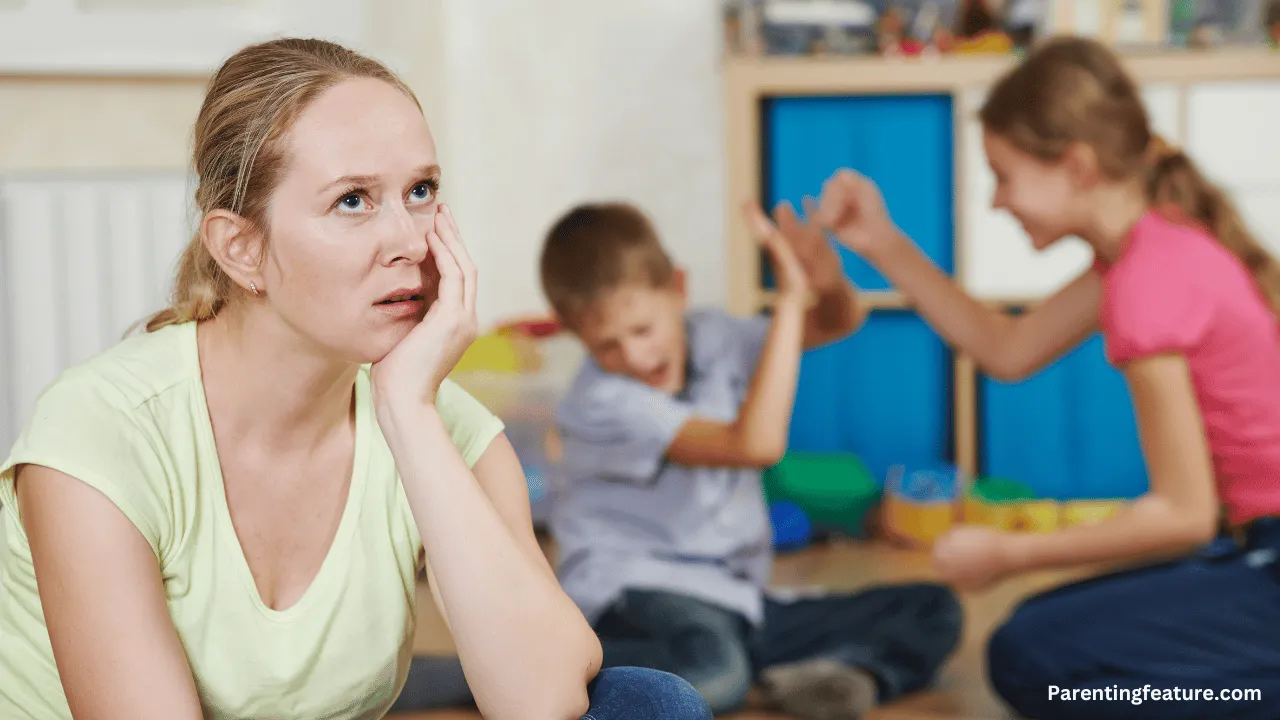It’s late afternoon, the house is a mess, dinner is nowhere near ready, and your child is having a meltdown because their tower of blocks won’t stay up. You’ve read the books, followed the blogs, and tried all the gentle parenting techniques, but nothing seems to work.
You’re in tears, questioning whether you’re cut out for this parenting gig. Many parents know this scenario all too well.
Consider a surprising statistic: interest in gentle parenting has surged, yet some critics claim it’s ineffective. This dichotomy leaves many parents confused and frustrated.
Gentle parenting is, at its core, about respect, empathy, understanding, and positive reinforcement. It stands in contrast to more authoritarian methods, focusing on nurturing a positive relationship with children rather than controlling them through fear or punishment.
This approach is often confused with permissive parenting, which lacks the boundaries and structure children need. The thesis of our discussion is that gentle parenting, while effective, has its limitations and must be adapted to fit the unique needs of each child and situation.
Why Gentle Parenting Can Be Effective
Gentle parenting aligns with a child’s emotional and cognitive development by fostering trust, self-regulation, and a solid parent-child relationship. This approach respects the child’s growing autonomy while guiding their understanding of the world.
Research suggests that children raised with empathy and understanding are more likely to develop problem-solving skills, resilience, compassion for others, and a strong sense of self.
Long-Term Benefits
The benefits of gentle parenting extend into the long term. Children raised with this approach often exhibit enhanced problem-solving abilities, resilience in the face of challenges, empathy towards others, and a well-developed sense of self. These are foundational qualities that contribute to a successful and fulfilling life.
Success Stories
There are countless stories of parents who have witnessed remarkable transformations in their children’s behavior through gentle parenting.
These narratives often highlight significant improvements in communication, emotional regulation, and overall happiness within the family dynamic.
Also read: Gentle Parenting Tips for Your 2 Year Old
When and Why Gentle Parenting Might Seem “Ineffective”
A common pitfall is the conflation of gentle parenting with permissiveness. Gentle parenting is not about letting children do whatever they want; it’s about setting limits with empathy. Understanding the difference is crucial for its practical application.
Needs Mismatch
Not every child responds to gentle approaches in the same way. Children with specific diagnoses, such as ADHD or ODD, those with trauma histories, or significant emotional needs may require additional or tailored strategies alongside gentle parenting.
Parental Stress/Burnout
Gentle parenting is challenging and demands a lot of emotional labor from parents. Those under high stress or experiencing burnout may find it challenging to maintain the consistency this approach requires.
Immediate vs. Long-Term Results
Gentle parenting often yields results over the long term, which can be discouraging for parents seeking immediate behavior changes. This delayed gratification aspect can lead to perceptions of ineffectiveness.
Also read: Gentle Parenting and Discipline: A Balance

Making Gentle Parenting More Effective
Educating oneself on child development, brain science, and age-appropriate behavior is essential. Understanding how trauma impacts behavior can also inform more effective gentle parenting strategies.
Adaptability
Gentle parenting isn’t a one-size-fits-all approach. The key to success is observing and understanding what works best for your unique child and being willing to adapt your strategies.
Boundaries 101
Setting clear, consistent, and kind boundaries is crucial. Gentle parenting emphasizes natural and logical consequences over punitive measures.
Empathy AND Problem-Solving
While validating feelings is essential, guiding children toward solving their problems is equally crucial. This balance fosters resilience and independence.
Self-Care for the Win
A parent’s mental and emotional well-being is foundational to practicing gentle parenting sustainably. Prioritizing self-care helps maintain the emotional reserve necessary for this demanding but rewarding approach.
When to Seek Further Support
Recognizing when a child might benefit from professional evaluation or support is crucial. Signs might include severe tantrums, aggression, self-harm, or significant developmental delays.
Seeking therapists with expertise in positive parenting can provide tailored strategies that align with gentle parenting principles but are customized to the family’s unique needs.
Seeking help is a sign of commitment to being the best parent possible, not a failure of the gentle parenting approach.
Conclusion
Gentle parenting is a valuable and practical approach but requires understanding, adaptability, and sometimes additional support. It’s not about being a perfect parent but about being compassionate, responsive, and reflective.
As we journey through the complexities of raising children, let’s ask ourselves: Can prioritizing connection while teaching accountability make a difference in your child’s life?
This open-ended question invites us to reflect on our parenting practices and their long-term impact on our children’s development and well-being.
FAQs
1. How does gentle parenting differ from permissive parenting?
While gentle and permissive parenting emphasizes love and care, gentle parenting involves setting and enforcing clear boundaries with empathy and understanding. Permissive parenting, on the other hand, often lacks these boundaries, potentially leading to issues with respect and discipline.
2. Can gentle parenting change a child’s behavior?
Yes, gentle parenting can positively change a child’s behavior. Focusing on emotional and cognitive development fosters trust, self-regulation, and a positive parent-child relationship. These elements contribute to improved children’s communication, emotional regulation, and problem-solving skills.
3. Why might gentle parenting seem ineffective at times?
Gentle parenting might seem ineffective when there’s a misconception about it being permissive, when it doesn’t match the child’s individual needs when parents are experiencing high stress or burnout, or because it often shows results over the long term rather than immediately.
4. What can make gentle parenting more effective?
Gentle parenting becomes more effective with a deeper understanding of child development and brain science, adaptability to the child’s unique needs, setting clear and kind boundaries, balancing empathy with problem-solving, and prioritizing the parent’s mental and emotional health.
5. When should I seek further support with gentle parenting?
If you notice severe tantrums, aggression, self-harm, or significant developmental delays in your child, consider seeking further support. Additionally, if you’re feeling overwhelmed or unsure how to implement gentle parenting effectively, a therapist specializing in positive parenting can provide customized strategies.








